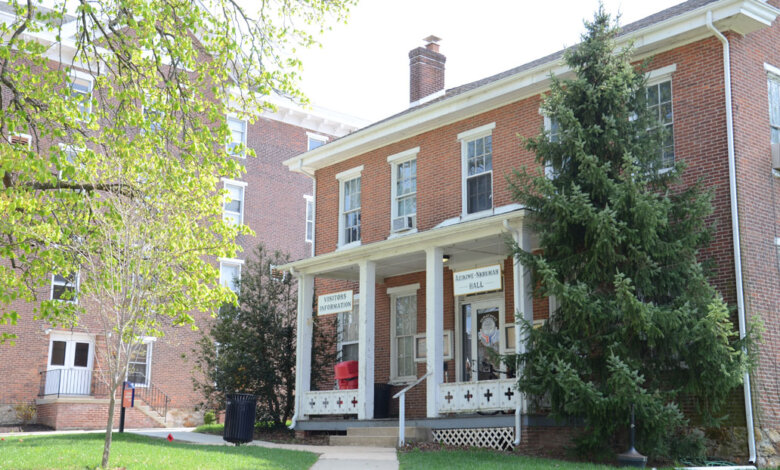
Azikiwe-Nkrumah Hall, located at the Lincoln University in Chester County, Pennsylvania, in the United States, stands as the oldest building on the campus of America’s first degree-granting Historically Black College and University (HBCU), founded in 1854.
Azikiwe-Nkrumah Hall, originally built in 1865 during the American Civil War when the university was known as the Ashmun Institute, has served multiple roles over its 160-year history. Initially a residence for professors, it later became the African Center, a hub for cultural exchange, and more recently housed campus security and the Division of Institutional Advancement offices. Its architecture characterized by a classical design complements its historical weight.
It was named after two distinguished alumni, Dr. Nnamdi Azikiwe, Nigeria’s first president (Class of 1930), and Dr. Kwame Nkrumah, Ghana’s first president (Class of 1939). Azikiwe, a Nigerian nationalist and journalist, and Nkrumah, a Pan-Africanist and Ghanaian revolutionary, both shaped the decolonization movements in Africa, drawing inspiration from their time at Lincoln. This was what the hall was made to symbolise.
However, by 2013, plans emerged to demolish Azikiwe-Nkrumah Hall to make way for a new welcome centre, as outlined in Lincoln University’s 2013-2018 Strategic Plan. This proposal sparked alarm among alumni, preservationists, and the broader community, who recognized the building’s irreplaceable value. Over 700 alumni and supporters signed a petition organized by the Lincoln University Heritage Initiative (LUHI), urging the university’s administration to reconsider.
The National Trust for Historic Preservation amplified these efforts, naming Azikiwe-Nkrumah Hall to its 2016 list of America’s 11 Most Endangered Historic Places. The designation highlighted the hall’s significance not only to Lincoln’s community but also to the broader narrative of HBCUs, which have been instrumental in advancing opportunities for African Americans and fostering global leaders.
The threat of demolition was rooted in practical concerns. After nearly a century and a half of continuous use, the building had fallen into disrepair, and its closure in 2016 raised questions about its viability. Critics of preservation argued that a modern welcome centre would better serve the university’s needs. Yet, advocates like Carol Black, a 1967 Lincoln graduate, countered that “new structures can be built anywhere, but Azikiwe-Nkrumah Hall cannot be replicated.”

The hall’s unique history, tied to the education of formerly enslaved individuals and the empowerment of African American and African students, made its preservation a moral and cultural imperatives. In response to these challenges, Lincoln University embarked on a thoughtful preservation effort, culminating in a significant renovation completed in spring 2021.
The project, funded by the Pennsylvania Department of General Services at a cost of $17.5 million, was led by Kimmel Bogrette Architecture + Site, a firm tasked with balancing historical integrity with modern functionality. After exploring options ranging from demolition to expansion, the university opted for a comprehensive renovation.
The restored Azikiwe-Nkrumah Hall now serves as the home of the Division of Institutional Advancement, with a welcoming centre hall, a parlour featuring a fireplace, a conference room, and offices for staff and student workers. Careful attention was paid to preserving historic elements, including the building’s original brickwork, windows, and trim, ensuring that its architectural character remained intact.
The renovation was celebrated with a ribbon-cutting ceremony in 2021, alongside the reopening of another historic campus building, John Miller Dickey Hall. This dual restoration project emphasised Lincoln University’s commitment to honouring its past while addressing contemporary needs.
The preservation of Azikiwe-Nkrumah Hall was in line with the university’s master plan, developed in collaboration with Sasaki, which emphasises the adaptive reuse of historic structures to maintain the campus’s cultural and architectural heritage.
For Lincoln University’s students, alumni, and faculty, Azikiwe-Nkrumah Hall is more than a building—it is a living connection to the institution’s storied past. As a student remarked in a 2025 Daily Local News article, “I get to walk the same stairs, study in the same halls, and live the same legacy that these leaders once did.”
Oral Ofori is Founder and Publisher at www.TheAfricanDream.net, a digital storyteller and producer, and also an information and research consultant.





